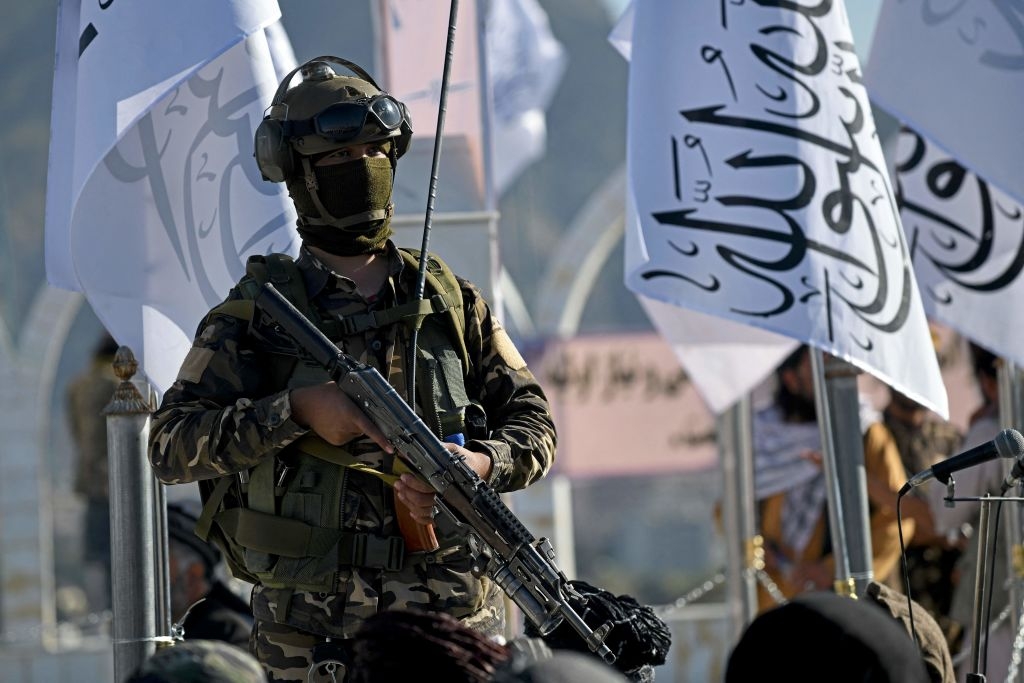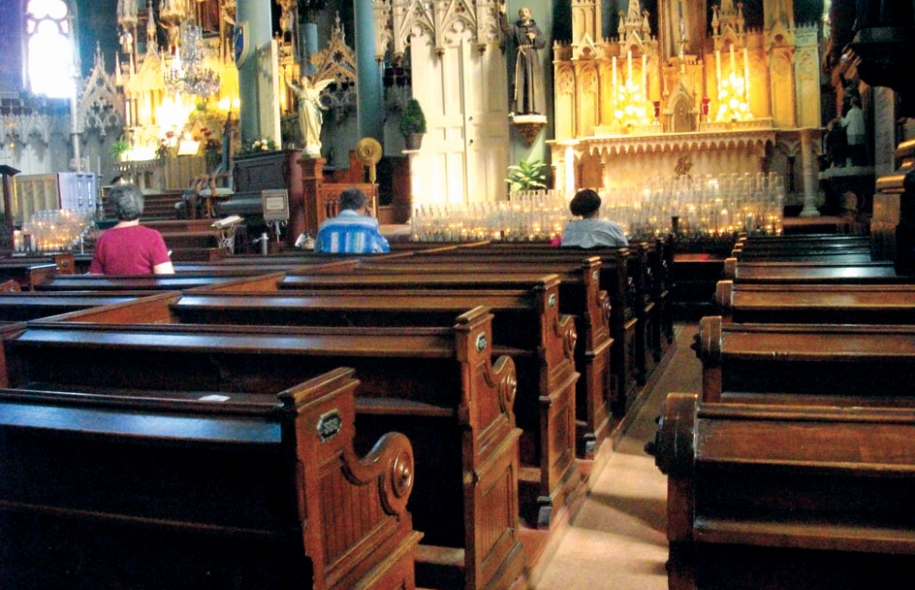Quebec, like the entire West, is facing an existential demographic and religious crisis.
Quebec's death spiral is explicitly linked with the calls for increased immigration. Canada's Prime Minister Justin Trudeau, who put an end to the military campaign against the Islamic State, just called on Muslim migrants to come to his country.
Resistance to Quebec's dramatic collapse of Christianity does not necessarily require a new embrace of an old Catholicism, but it certainly does need a sane rediscovery of what a Western democracy should be. That includes an appreciation of Western identity and Judeo-Christian values -- everything Trudeau's government and much of Europe apparently refuse to accept.
Welcome to Quebec, with its flavor of an old French province, with its beautiful landscapes, where streets are named after Catholic saints, and where a gunman just murdered six people in a local mosque.
Violence can be the consequence of societal convulsions, as in the 2011 massacre on Norway's island of Utoya, in a country that prided itself of being ultra-secularized, and part of the global "good society". Quebec, also, like the entire West, is facing an existential demographic and religious crisis.
George Weigel, writing in the American publication, First Things recently called Quebec "Catholicism's Empty Quarter". "There is no more religiously arid place," he wrote, "between the North Pole and Tierra del Fuego; there may be no more religiously arid place on the planet".
Sandro Magister, one of Italy's most prominent journalists on Catholic affairs, wrote, "while Rome talks, Quebec has already been lost".
Quebec's Catholic buildings are empty; the clergy is aging. Today, inside the Church of Saint-Jude in Montreal, personal fitness trainers take the place of Catholic priests. The Théatre Paradoxe in Montreal now sits where the church of Notre-Dame-du-Perpétuel-Secours was before it shut. The former Christian nave is now used for concerts and conferences, while Christian hymns on Sundays are replaced by disco shows.
 The Church of Saint-Jude in Montreal is today the "Saint-Jude spa" for "wellness worshippers," complete with personal trainers, trendy cocktail parties and custom-built crucifix-shaped benches in the changing rooms. (Image source: Montreal.TV video screenshot) |
The Catholic Diocese of Montreal sold 50 churches and other religious buildings in the last 15 years. On May 24, 2015, the last Mass was celebrated in the famous Church of St. John the Baptist, dedicated to the patron of French Canadians. The Auxiliary Bishop of Quebec, Gaetan Proulx, said that "half of the churches in Quebec" will close in the next ten years.
In Denys Arcand's film "The Barbarian Invasions," there is a moment when a Catholic priest surveys the worthless religious art kitsch with which his diocese is burdened, to point to the irrelevance. The old priest says:
"Quebec used to be as Catholic as Spain or Ireland; everyone believed. At a precise moment, during the year 1966 in fact, the churches suddenly emptied in a matter of months. A strange phenomenon that no one has ever been able to explain".
"Man without history, without culture, without country, without family and without civilization is not free: he is naked and condemned to despair", writes Quebec's philosopher, Mathieu Bock-Côté.
The state of Catholicism in Quebec today is indeed desperate. In 1966, there were 8,800 priests; today there are 2,600, most of whom are elderly; many live in nursing homes. In 1945, weekly mass was attended by 90% of the Catholic population; today it is 4%. Hundreds of Christian communities have simply disappeared.
The Quebec Council of the Religious Heritage has reported that in 2014 alone, a record 72 churches closed. The situation is even worse in the Archdiocese of Montreal. From 257 parishes in 1966, there were 250 in 2000, and in 2013 only 169 parishes. Christianity seemed at the risk of extinction; the Archbishop of Montreal, Christian Lépine, launched a moratorium on the sale of the churches.
While Quebec's authorities used an aggressive secularism as a tool to advance multiculturalism, Quebec witnessed a dramatic rise in the number of young Muslim men who joined the Islamic State. Terror attacks were committed by converts to Islam -- people who rejected Canadian relativism to embrace Islamist fanaticism. "Quebec's secularist fundamentalism has gone so far as to impose on all state and private schools -- the first instance of its kind in the world -- an obligatory course on 'ethics and religious culture'", Sandro Magister wrote.
An academic report concluded:
"Canadian census data shows that Islam is the fastest growing religion in the country, and that although most of the Muslim population growth is related to Muslim birth rates and migration, since 2001 the Muslim population has also increased as a result of religious conversions by non-Muslim Canadians".
Quebec's demographic decline is also telling. The birth rate has fallen from an average of four children per couple to just 1.6 -- well below what demographers call the "replacement rate". Quebec was unique compared to developed nations in the intensity and speed with which total fertility rates dropped.
Quebec's death spiral is explicitly linked with the calls for increased immigration. Canada's Prime Minister Justin Trudeau, who put an end to the military campaign against the Islamic State, just called on Muslim migrants to come to his country.
According to demographers, the province of Quebec alone needs between 70,000 and 80,000 immigrants a year to compensate for its low birth rate. But to compensate for a demographic fall, what happens when one of the most famous Catholic territories in the world undergoes such a cultural and religious revolution?
Resistance to Quebec's dramatic collapse does not necessarily require a new embrace of an old Catholicism, but it certainly does need a sane rediscovery of what a Western democracy should be. That includes also the appreciation of the Western identity and Judeo-Christian values -- everything that Trudeau's government and much of Europe apparently refuse to accept. Half of Trudeau's ministers were not sworn in with a religious oath. They refused even to say "so help me God".
Quebec's motto is: "Je me souviens": I remember. But what, exactly? In "Catholicism's empty quarter", will the winner be Islam?
Giulio Meotti, Cultural Editor for Il Foglio, is an Italian journalist and author.

























Laissez un commentaire Votre adresse courriel ne sera pas publiée.
Veuillez vous connecter afin de laisser un commentaire.
Aucun commentaire trouvé